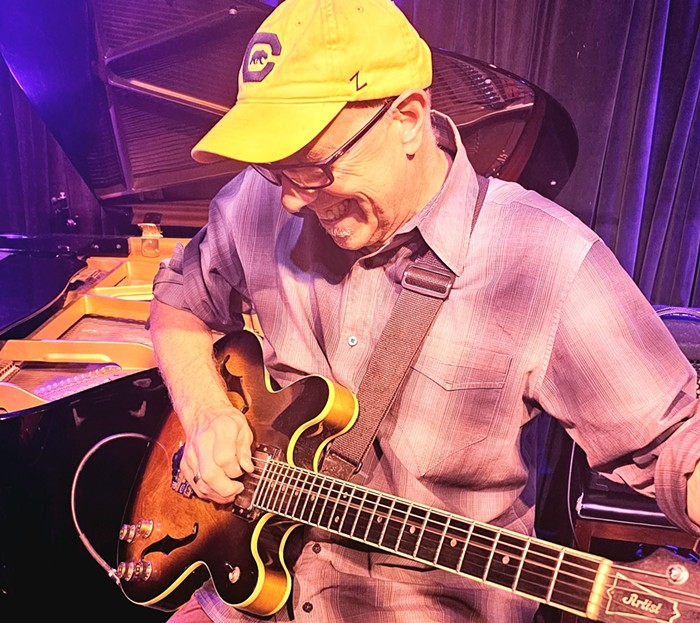LISTENING TO the carefully broom-swept debut of On the Stairs, a listener might expect its follow-up to be a similarly plotted bit of songwriterly, Portland-brand chamber folk. But as it turns out, Nate Clark—writer, singer, guitarist, and lone constant member of the group—has followed up last year's Beyond a Shadow of a Doubt a scant nine months later with A Muted Dawn, a scorching sophomore platter that fires out eight hot blasts of horn-drenched '60s soul in just under half an hour.
"It seems like guys 30 or 40 years ago would put out one or two albums a year," says Clark of A Muted Dawn's quick appearance. "Marketing's not my strong point. I just got it out there when I could.
"[On the Stairs] hadn't played out live a lot when I recorded the first one," he continues, "so I was sort of a chemist in the lab—working at the studio, coming up with stuff. Whereas this one, we'd played the set 50 times throughout the summer. The whole approach was just coming in and getting it down, rather than spending hours trying to find the right sound."
The connection between the two records (which are both currently available for free download at On the Stairs' Bandcamp page) becomes apparent upon closer listening—for instance, before its brassy climax kicks in, the freewheeling folk of "Roses without Thistles" could have fit neatly on the first record, while the ghostly ballads "The Sycamore Grove" and "The Wolf" boast trembling, tense arrangements. But A Muted Dawn is more immediately striking for the two sizzlers that kick it off: Opener "How it All Began" marries '60s baroque pop to country soul, refusing to nestle on a root chord but still sounding addictively earworm-y. And "Stand" is as fine a number as Otis Redding ever got his pipes on, a Stax-like anthem that showcases Clark's startling musicianship: not just with a stunning Steve Cropper-like lead guitar, but also in his gospel-hollering lead vocals, a marked change from the low croon Clark utilized throughout most of On the Stairs' debut.
"I didn't think I wanted to do this big horn record," says Clark. "But I had that 'Stand' song and I was like, 'Of course this cries out for horns, there's no way it can't have horns.' So I brought all these guys in and it just sounded too good. I figured if I had horns on that one, I had to have horns on everything."
On the Stairs was an about-face of sorts following the dissolution of Les Flaneurs, Clark's first band after moving to Portland from Illinois in 2006. "I think conventionality was my enemy in that band," Clark explains of Les Flaneurs' mathy, Beefheart-inspired compositions. "I'd wanted to do something very different and strange. But our very last show was the CD release of our first album, and it kind of left a bad taste in my mouth. Now I've got Christmas presents for the next 20 years sitting in my trunk," he laughs. "I just wanted to turn a corner. I found trying to tackle more conventional songwriting a little more rewarding than trying to do something strange and exotic."
The name On the Stairs indicates Clark's loose-handed approach to the project, which he says in the future might make a swampy, country-rock record. "In architecture, there are liminal spaces like stairways or porches; they're between things. You don't have a party and hang out on the stairs. It's a place where you're on your way to somewhere. So I like that idea of transition, moving between things."



















